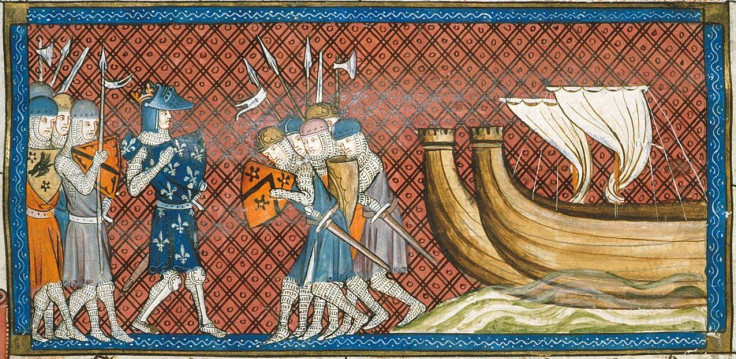Religion And Politics: Instead Of Uniting Societies, Religion Has Been Causing Conflict For 2,000 Years, Says Study

Contrary to the belief that the emergence of religion in early civilizations helped form societies, a group of anthropologists from the University of Colorado and the University of Central Florida have published a study that says the opposite: Religion actually caused tension and conflict in the past, as it does now.
“It doesn’t matter if we today don’t share particular religious beliefs, but when people in the past acted on their beliefs, those actions could have real, material consequences,” said Sarah Barber, associate professor at the University of Florida and an author of the study, in a press release. “It really behooves us to acknowledge religion when considering political processes.”
The researchers examined Mexican archeological sites in the Lower Río Verde Valley of Oaxaca, the Pacific coastal lowlands, for several years. They focused particularly on the time period that lasted from 700 B.C. to 250 A.D., when political states began to form in the region. During this time, however, religious rituals kept people tied to their local communities, unable to acclimate to the political state. Traditional religious leaders also clashed with new political leaders who started mediating between communities and the gods, ultimately changing the political climate to one of tension between communities.
“In both the Valley of Oaxaca and the Lower Río Verde Valley, religion was important in the formation and history of early cities and states, but in vastly different ways,” said Arthur Joyce, a professor of anthropology at the University of Colorado, in the press release. “Given the role of religion in social life and politics today, that shouldn’t be too surprising.”
The mental, physical, and spiritual benefits of religion on the individual have been examined in plenty of studies, but evidence of the benefit of religion on a larger scale is more difficult to surmise. One recent study, however, found that children who grew up without religion were actually kinder and more altruistic than kids who grew up in religious homes.
And while studies have shown that religion can benefit individuals on a medical level, others have found different results. One paper found that praying and religion may actually exacerbate anxiety-related disorders. Given the complexity of how religion impacts us on an individual and societal level, the latest study merely emphasizes what we have all probably already thought — religion is more often a source of conflict than of peace.
"Both [Mexican] regions show that religion was not necessarily a unifying factor in social change, as has often been assumed, but instead could be a crucible of tension and conflict through which political innovations were produced," the authors conclude in the study.
Source: Joyce A, Barber S. Ensoulment, Entrapment, and Political Centralization: A Comparative Study of Religion and Politics in Later Formative Oaxaca.



























